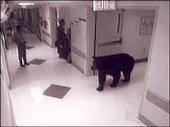
Yang Sang-hoon
The Barack Obama administration's North Korea policy is against recognizing North Korea as a nuclear power. But recognized by the U.S. or not, the North is one. The nuclear bomb it tested recently must have been smaller than the one tested in 2006. If the North carries out a third nuclear test, chances are that it will be a nuclear warhead, plutonium or uranium, that is small enough to be loaded on a missile.
The head of the Agency for Defense Development said, "North Korea seems to have reached a stage where it can minimize a nuclear warhead." Even if that is untrue for the moment, it is a only matter of time before the North manages to miniaturize its A-bombs.
Seoul, Busan, Tokyo, Osaka, Beijing and Vladivostok are already within range of North Korean missiles. The intercontinental ballistic missile the North reportedly plans to test-fire is aimed at showing that Seattle and San Francisco will also be within range. Even if the test fails, it will also be a matter of time before the North perfects the technology.
With the weapons-grade plutonium it now has, the North can produce about 20 nuclear warheads. In addition, North Korea has the largest uranium reserve in the world. With uranium, mass production of nuclear weapons is possible. If it manages to enrich sufficient quality uranium, the number of nuclear warheads will increase explosively. Not recognizing a country that has tens or hundreds of intercontinental ballistic nuclear warheads as a nuclear power may be a political tactic, but it is pointless. The world moves by facts, not words.
Washington and Seoul have wasted over a decade under the illusion that Pyongyang would give up its nuclear programs for the right price. America has no more means to stop North Korea. From Washington, it is now clear that America has been all talk. No UN resolutions, however strong, will be of help in restraining the North.
The only country that can check Pyongyang is China. But China feels that a nuclear-armed North Korea is better than its collapse. The prospect that China, in fear of Japan's nuclear armament, will block North Korea from keeping its nuclear weapons, is nebulous. It is by no means easy to prevent Japan from arming itself with nuclear weapons. That means we have to learn to live with a nuclear power next door.
The situation on the Korean Peninsula is entirely different now. The U.S. has never been exposed to a nuclear threat from a rogue regime like North Korea. Pyongyang is a terrorist regime that has blown up a private passenger airliner. Its leader proclaims in public that he will crush his country's enemies. The North's nuclear missiles mean an emergency for the U.S., which is anxious about Pakistan's nuclear facilities. The missile defense system under construction by America and Japan is all but useless, a senior Japanese official has said.
Chances are that the U.S president will have to conduct nuclear disarmament talks with the North. With this in mind, Kim Jong-il has set the year 2012 as the "year opening the gate to a great, prosperous and powerful nation." There is no room for the South to squeeze itself into the talks. That is exactly what the North wants. It is more than evident that the talks won't discuss nuclear disarmament only. What North Korea and the U.S. will talk about behind closed doors does not bear thinking about. Washington will repeatedly promise the South a nuclear umbrella, but that is little more than fine words.
If South Korea does not think about its own nuclear armament even then, the state is unworthy of its name. But the U.S. and the international community will never accommodate our nuclear armament. Unlike the North, we can barely sustain ourselves for a few months with a fence erected against the international community. That means we will have to reintroduce U.S. nuclear weapons. It remains to be seen, however, if the U.S. will make such a choice in a completely changed situation on the Korean Peninsula.
Chances are that Kim Jong-il, in view of his age, will die once the North is publicly recognized as a nuclear power and has opened the gate to a great, prosperous and powerful nation. No outside strength can sway a nuclear power. Accordingly, the often raised equation of Kim Jong-il's death with the North's collapse is unlikely. The South will find it difficult even after Kim's death to evade the fate of living relying on the U.S. as a hostage of a rogue nuclear regime.
This scenario may be too bleak. But the North Korean nuclear problem has always taken the worst possible turn. We must look at the reality and prepare for the worst-case scenario. Are the government and people ready to do that?
By Chosun Ilbo columnist Yang Sang-hoon

No comments:
Post a Comment